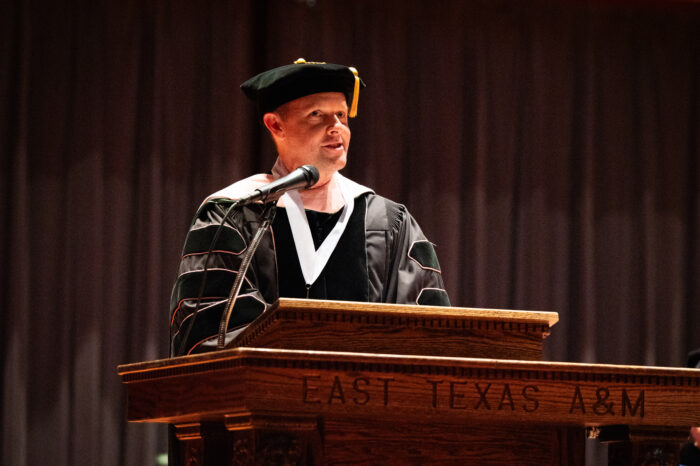
A&M-Commerce Awarded $1.23 Million Grant to Serve Disadvantaged Rural Students in Texas
Texas A&M University-Commerce is the recipient of a $1.23 million Rural Postsecondary and Economic Development (RPED) grant earmarked to benefit disadvantaged students by improving rates of college enrollment, determination and completion among rural students.
The RPED grant program is designed to develop high-quality career paths that align with high-skill, high-wage, and in-demand industries and occupations in the region.
The grant will be allocated to the Attaining College Entry and Success (ACES) project, led by principal investigator Sharonda Pruitt, Ed.D, and co-principal investigators Tami Morton, Ph.D.; Kriss Kemp-Graham, Ph.D.; and Hattie Powell, Ed.D., all of A&M-Commerce.
The project seeks to create an innovative approach to increase college readiness, entry and perseverance for a cohort of students from two rural school districts in Texas: Commerce ISD and Community ISD.
ACES will provide a work-based course and internship with exploratory learning opportunities. It will utilize the expertise of multiple agencies, including the A&M-Commerce College of Education and Human Services, the A&M-Commerce Division of Enrollment Management, Jobs for the Future, the Foundation for the Advancement of Career and Technical Education, and ProED Consulting.
“The ACES project will provide students with insight into quality career opportunities in our region and deliver the skills and tools they need to navigate the college landscape and gain their degree,” Pruitt said.
The funding will be awarded over three years, serving a maximum of 60 students from the designated school districts.
To qualify for the ACES project, a student must:
- Be enrolled in Commerce ISD or Community ISD as a junior advancing to their senior year
- Identify as Black or Hispanic, or classify as economically disadvantaged
- Be a first-generation college student
- Commit to attending A&M-Commerce for their postsecondary education.
Participating students will be referred to as ACES Fellows. They will receive individual technology, membership to career-focused organizations, and summer career exploration opportunities. Fellows who complete the three-year initiative, including the sophomore internship job, will receive a $1,000 stipend.
Pruitt said the ACES project is a great opportunity for future underserved and first-generation Lions.
“Our ACES Fellows will experience hands-on learning through exploration of various businesses and careers,” Pruitt said. “These students will share common living and learning opportunities that will allow them to create strong relationships with their peers.”
To learn more about the ACES project, contact [email protected].
More Press Release
View All Press Release
Lion Volleyball Announces 2025 Conference Schedule, to Host SLC Tournament on Nov. 21-23
The East Texas A&M University volleyball program released its 2025 Southland Conference schedule, which includes hosting the SLC Volleyball Tournament in Commerce at the end of the season.

Newest Regents Professor Honored at Annual Convocation
East Texas A&M University Regents Professor of Music Dr. Brian Zator was officially recognized for his outstanding achievement at the university's annual Spring convocation.

East Texas A&M Installs State-of-the-Art Video Boards in the Field House
East Texas A&M University enhanced the in-venue experience inside the Hunt Regional Healthcare Court in the Field House this spring by installing four videoboards and two ribbon boards.


